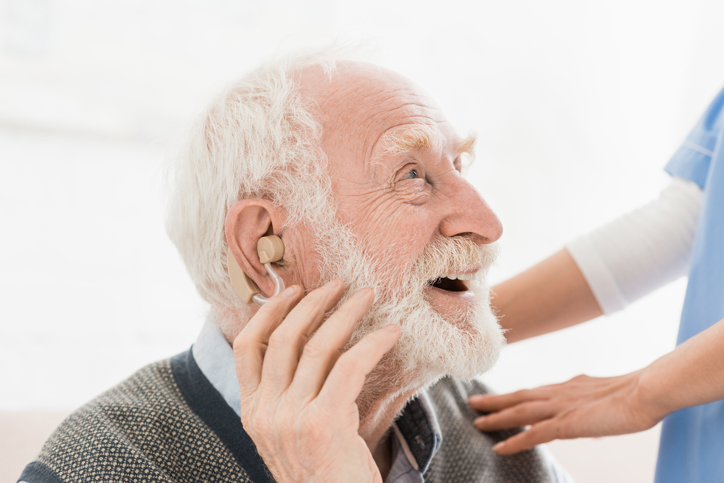
Hearing loss due to aging is surprisingly common in seniors.
Isolated. Misunderstood. Excluded. These are just a few of the many emotions which are common in those with hearing loss, who struggle to continue to maintain social connections with friends and family members, who find it challenging to communicate with them.
Hearing loss due to aging is fairly prevalent, for quite a few reasons: genetics, a lifetime of accumulated damage from noise, disease, and the aging process itself. And while frustrating when wanting to join in conversations, hearing loss might also be hazardous, leading to missed information presented by medical practitioners, alerts, doorbells, and alarms that are unheard, and so much more. On top of that, untreated hearing loss puts seniors at a greater chance for being diagnosed with dementia, as cognitive capabilities decrease at a quicker speed.
If you believe an older loved one may be dealing with hearing issues, review the following checklist of hearing loss red flags:
- Complaining of other people mumbling
- Turning the TV or radio up to volumes that disturb others
- Often asking others to repeat what was said
- Struggling especially with hearing women’s and children’s voices
- Getting lost in discussions with more than a couple of people
- Problems hearing on the phone
To better communicate with an older adult with hearing loss, try the following tips:
- Speak clearly, at a reasonable pace, while facing your senior loved one and keeping eye contact
- Use gestures and other nonverbal cues together with your words
- Cut down on background noises and potential distractions
- Stay patient, relaxed, and positive
- If asked to repeat something, try utilizing different words
There are a number of helpful adaptive products readily available that your loved one’s doctor may recommend. For example:
- Hearing aids: With several different kinds available, make sure your senior loved one requests a trial period before investing in a particular hearing aid, as insurance might not cover the cost, and they are often very expensive.
- Cochlear implants: These electronic devices are suitable for people diagnosed with severe hearing loss, but are not effective with all types of hearing loss, and may need to be supplemented with additional adaptations, such as flashing doorbell lights or vibrating smoke detector alarms.
- OTC options: Those diagnosed with mild or moderate hearing loss might find relief from new over-the-counter hearing devices, which amplify sounds; soon to be for sale for purchase online and in stores.
The following resources can offer additional information and assistance for individuals experiencing hearing loss:
Hearing Loss Association of America
301-657-2248
American Speech-Language-Hearing Association
800-638-8255
National Institute on Deafness and Other Communication Disorders
800-241-1044
Morning Glory Home Care can also offer invaluable assistance to those with hearing loss in many ways, such as recommendations for adaptive devices, transportation and accompaniment to healthcare appointments and procedures, friendly companionship to stave off loneliness, and so much more. Give us a call today at 618-667-8400 for more information on our specialized senior care in Edwardsville, IL and the surrounding communities that makes life safer and more comfortable and enjoyable, as well as for additional hearing loss resources.
